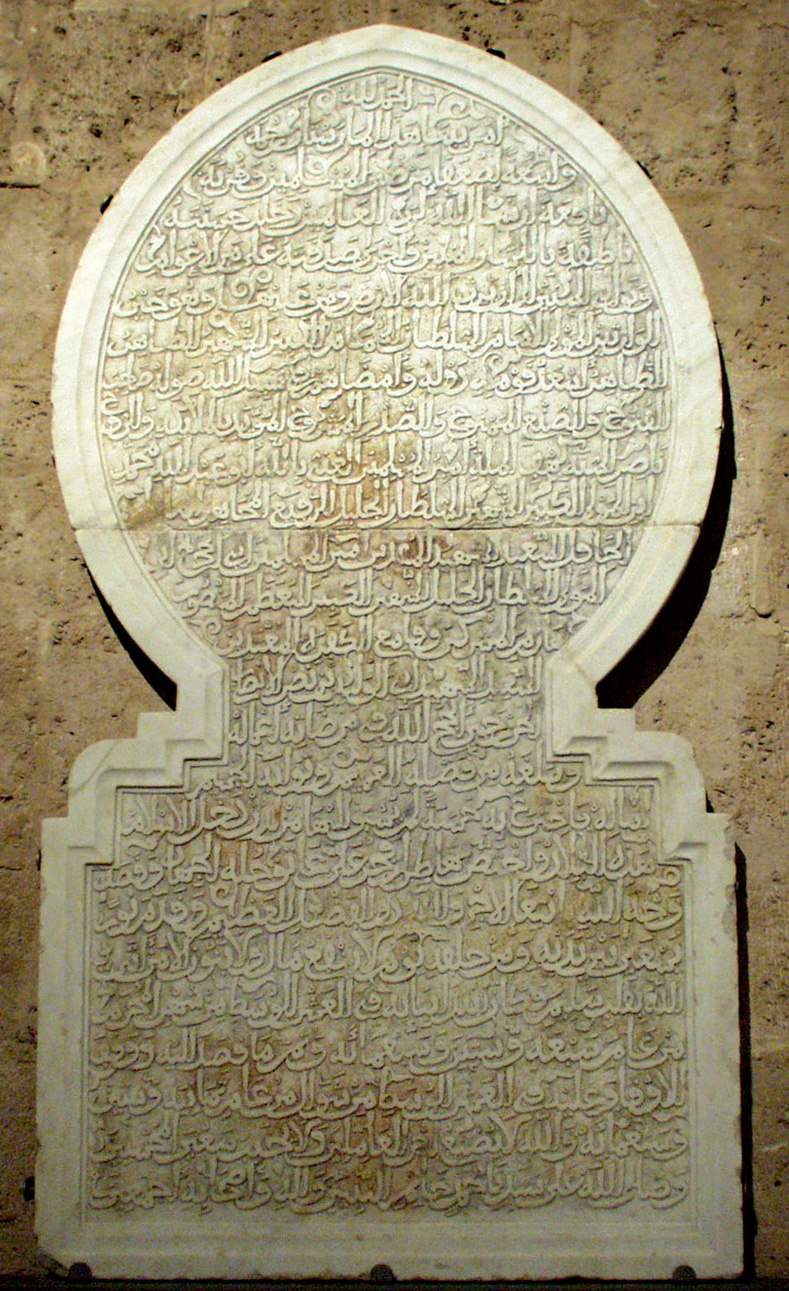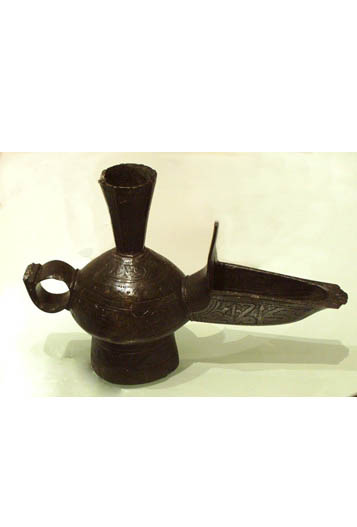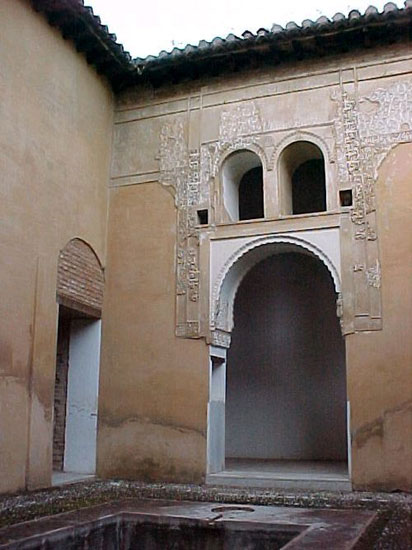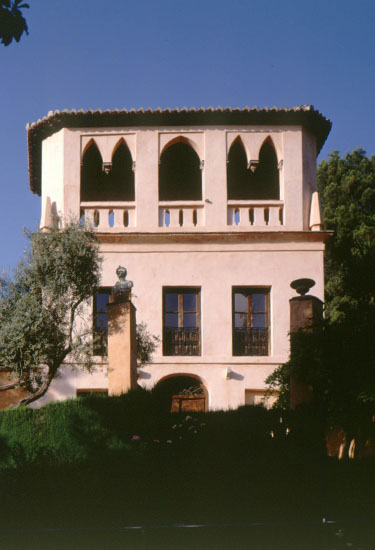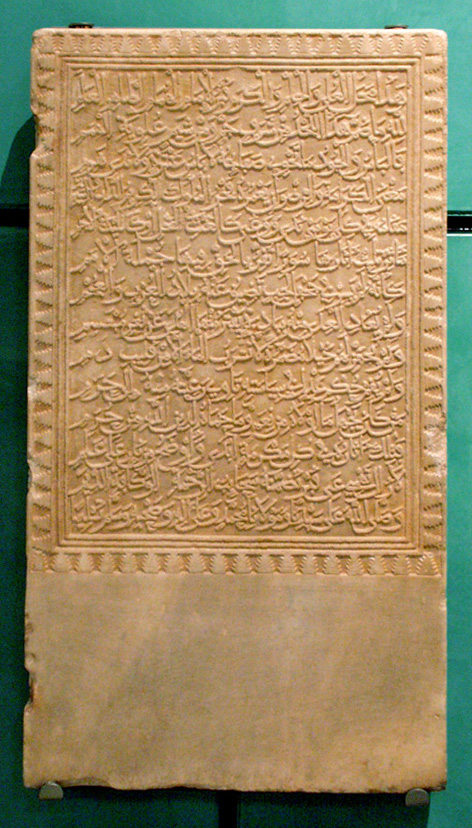Alizar Tilework from the Queen´s Dressing-Room
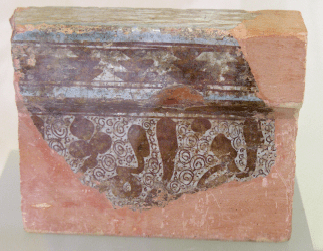
The Spanish term alizar, which derives from the Andalusian Arabic word issal meaning "low" or "bottom part", is normally used to refer to a tile or panel of tiles decorating the lower part of a wall. The specific use of the word alizar discussed here implied that the tile was connected to other similar tiles forming a frieze decoration on the edge at the corner of the sill on low windows. It comes from the room in the tower-balcony of Abu i-Yuyus Nasr, also known as Abu l-Hayyay, and more generally as the Queen’s Dressing-Room.
In order to fit perfectly into the edge of the sill, it was made with a mould with an angled or L-shaped profile. This is why it has a broad horizontal base on the back which was not normally visible and helped embed the piece into the wall. On the outside it has a vertical face which thickens towards the top. This surface, which was visible, was glazed and decorated.
This piece is exceptional for various reasons. First of all, because its surface is decorated with gold lustre on white and with traces of blue, the most expensive, richest ornamentation technique used in Hispano-Muslim ceramics. There are very few alizares with gold lustre decoration left in the Alhambra. Secondly because its main decorative theme is calligraphic: with the proclamations in Arabic Al-yumn al-da’im, al-‘izz al-qa’im (Eternal happiness, Permanent glory). The letters are written in naskh script with varying thickness according to the curves and a graceful rhythm, which according to Jose Miguel Puerta Vilchez was very similar to that used in the Jug of the Gazelles. Thirdly because the alizar comes from a very special part of the palace area of the Alhambra which has undergone huge transformations throughout history, namely the tower-balcony of Abu i-Yuyus Nasr. And lastly because the piece is a perfect example of the works of art made during the third Nasrid artistic period during the reign of Muhammad V (1362-1391), when architecture and decoration achieved a dramatic evolution and refinement never seen before in Hispano-Muslim art.
Opening Times: Saturdays at 12h.
Place: Room V, Museum of the Alhambra, Palace of Charles V.





 Contact
Contact






